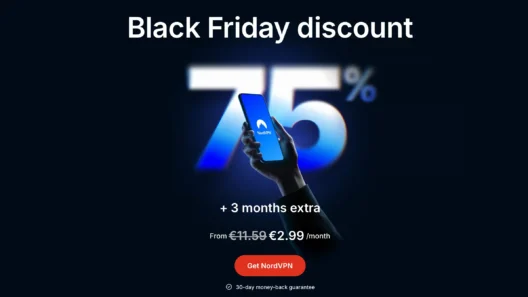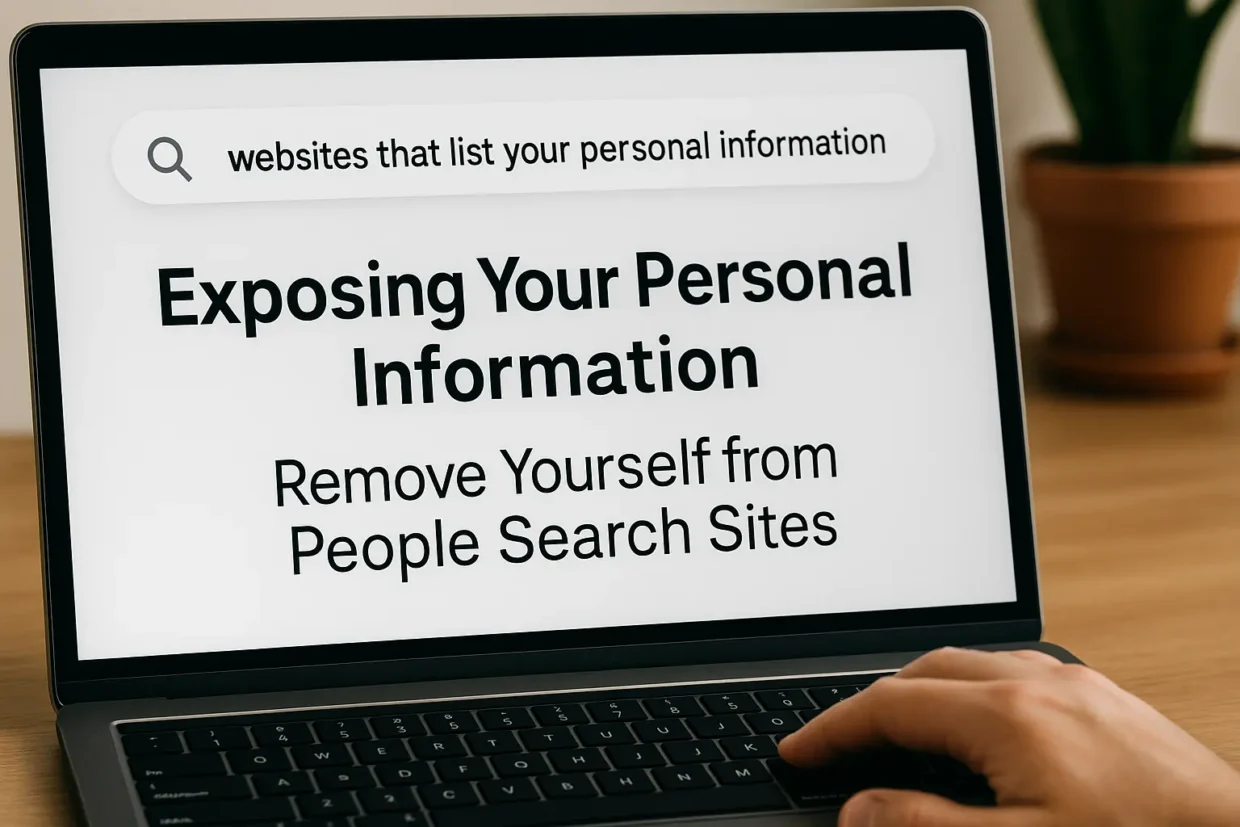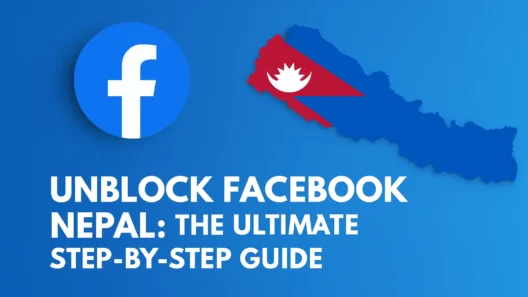Forget the feeling that your personal data is “out there somewhere.” The truth is, if you’ve ever owned a phone, rented an apartment, or even filled out a sweepstakes, your personal information is definitely out there. Welcome to the wild world of people search sites—platforms that collect, organize, and sell your data with almost zero effort on your part.
Sounds shady? It’s a multi-billion-dollar industry, and it’s quietly reshaping what privacy even means in 2025.
Why This Matters (And Why You Should Care)
It’s one thing to have your phone number floating around because you gave it to your gym. It’s a whole different nightmare when your full name, address history, relatives, employment details, and even possible court records are a Google search away—served up by companies you’ve never heard of, for anyone willing to pay a few bucks.
For some, it’s a minor annoyance: more junk mail and robocalls. For others, it’s fuel for scams, identity theft, stalking, doxxing, or straight-up digital harassment.
There have been real stories of people losing job opportunities, being targeted by scammers who know their family ties, or getting caught up in “digital redlining” (yep, your data can influence loan rates, insurance, and much more).
So, why is this happening? And more importantly—how do you fight back?
What Are People Search Sites (PSS), and How Do They Work?
People search sites (PSS) are essentially data brokers on steroids. Unlike your local supermarket loyalty card, which quietly tracks your snacks, these sites scrape public records, social media, marketing databases, and even shady sources to create massive dossiers on almost everyone. Think of them as the world’s nosiest neighbor, only with an algorithm and a global reach.
Anyone can access this info—sometimes for free, often for a small fee. Landlords use them for background checks. Marketers use them for targeted ads. Scammers use them for phishing. Even random exes can use them to “see what you’re up to.” There’s no magic trick here: most of these sites buy, trade, and resell your info legally, thanks to loopholes in data protection laws.
Why You Should Remove Your Data (And What’s at Risk If You Don’t)
You might think, “I have nothing to hide.” That’s fine—until someone uses your data in ways you never imagined:
- Scams: Detailed profiles make phishing attacks much more convincing.
- Identity Theft: The more info is out there, the easier it is to open fake accounts in your name.
- Online Harassment: Doxxing and stalking cases are rising every year.
- Financial Discrimination: Your data can shape credit offers, loan eligibility, even job prospects.
- Family Risk: Many sites tie you to family members, exposing their info as well.
Long story short? The more personal info that’s public, the bigger your digital target becomes.
The Biggest People Search Sites (And What They List About You)
Let’s run through the major players—where they’re based, what data they show, and, most importantly, how to get off their lists.
Whitepages
- Based: USA, but covers most of North America.
- What They List: Name, age, current and past addresses, phone numbers, known relatives, sometimes even criminal records and property details.
- How To Remove Your Data: Whitepages has an opt-out process on their site. You’ll need to verify your identity and confirm the removal. They don’t make it quick or easy, but it is possible.
Intelius
- Based: USA.
- What They List: Names, addresses, phone numbers, possible relatives, employment info, and criminal history.
- Opt-Out: Go through their online request form, and prepare to wait a few days. You may need to provide an email and some personal details for confirmation.
BeenVerified
- Based: USA, national reach.
- What They List: Names, contact details, addresses, relatives, social media profiles, even property and legal info.
- Opt-Out: They have a straightforward process via their website. Confirmation is usually sent to your email.
PeopleFinder
- Based: USA, covers North America.
- What They List: Full names, previous and current addresses, phone numbers, email addresses, relatives.
- Opt-Out: Online opt-out form, but it can take a week or more to process.
Instant Checkmate
- Based: USA.
- What They List: Personal info, criminal records, court records, addresses, phone numbers, and even social media data.
- Opt-Out: Submit a request online; they’ll email you when your profile is removed.
Radaris
- Based: USA, but data extends internationally.
- What They List: Names, emails, addresses, jobs, social accounts, business affiliations.
- Opt-Out: They require you to register, search for your own profile, and then request removal—time-consuming, but effective.
TruthFinder
- Based: USA.
- What They List: Everything from contact info and addresses to possible associates and criminal records.
- Opt-Out: Complete their form, verify via email, and your info should disappear—at least until their next big data scrape.
Smart Background Checks
- Based: USA.
- What They List: Phone numbers, addresses, property records, social connections, court filings.
- Opt-Out: You’ll need to submit your details online; it’s removed in about 48 hours.
How to Keep Your Personal Information Off People Search Sites
Let’s be brutally honest: removing your information from people search sites isn’t a “one-and-done” job. The biggest frustration? Even after you opt out, your data can sneak back in after a few months when these sites refresh their databases. So, what can you actually do—without dedicating your weekends to endless forms?
1. Use a Personal Information Removal Service (Incogni, OneRep, DeleteMe, etc.)
Here’s the shortcut: services like Incogni can automate the entire opt-out process across dozens (sometimes hundreds) of data broker sites. With Incogni’s Family & Friends plan, you can even protect up to four people at once—a lifesaver if you’ve got kids, elderly parents, or a partner who doesn’t want to mess with forms.
- How it works: You provide your info, Incogni tracks down likely brokers, files removal requests, and keeps sending follow-ups as new databases appear.
- What you get: Access to a dashboard showing which sites had your info, who got removal requests, and which ones are still pending.
- Bonus: You can add up to three phone numbers, three emails, and three addresses per user (for U.S. customers)—essential, since most of us have used multiple emails or moved a few times.
- Current pricing: Around $7.49/month for individuals or $16.49/month for the family plan (often with discounts). Pricey? Maybe, but if you value your time and sanity, it’s worth considering.
Incogni
PSS sites love “connecting the dots” between you and your family. With Incogni, you can block them from targeting your whole household—ideal if you’re worried about kids, vulnerable relatives, or just want total peace of mind.
2. DIY Privacy: How to Manually Opt Out (and Actually Make It Stick)
If you’re more of a DIY-er or don’t want to pay for a service, here’s how to keep your info off these sites—without losing your mind:
- Set a recurring reminder: Every 3–6 months, revisit the top people search sites (listed above) and redo the opt-out process. It’s tedious, but necessary.
- Make a spreadsheet: Track where you’ve opted out, dates, and any confirmation emails. This way, you’ll know who’s slacking if your data pops up again.
- Check for new sites: The landscape is always changing—new data brokers appear (and disappear) regularly. A quick Google search for “people search sites” or “data brokers” every few months can help catch new offenders.
3. Lock Down Your Social Media and Online Accounts
A shockingly large amount of “public” info on people search sites comes from what you share online. To cut the leak at the source:
- Switch your social profiles to private: Facebook, Instagram, TikTok, and X (formerly Twitter) all have privacy settings. Use them. Lock down your friend lists, hide your posts from non-friends, and be ruthless about what you share publicly.
- Watch third-party app permissions: Those fun quizzes and “which cartoon character are you” games often scrape your info—and can leak it to brokers.
- Don’t overshare: Avoid putting your full birthday, phone, or address online—even in closed groups.
4. Mask Your Data Whenever Possible
- Use throwaway emails: For online signups, newsletters, contests—never give your main address. Tools like SimpleLogin, AnonAddy, or even Gmail’s alias feature can help.
- Consider a virtual phone number: Google Voice, Burner, or Hushed can provide a buffer between you and the endless robocalls.
- Be skeptical about forms: Just because there’s a blank space for your info doesn’t mean you have to fill it in.
5. Browse Smarter and Keep Your Devices Clean
- Use a VPN: Services like NordVPN, Surfshark, or ExpressVPN hide your IP address, making it harder for sites to track you (and feed data to brokers).
- Opt for privacy-first browsers: DuckDuckGo, Brave, and Firefox (with privacy add-ons) are miles better than Chrome or Edge when it comes to stopping trackers.
- Regularly audit your apps: Delete what you don’t use. Check privacy policies on anything new.
Even More People Search Sites (Don’t Forget These)
The big names get all the attention, but there are dozens of smaller sites that can spill your secrets. Some of these are niche, regional, or industry-focused, but all can be scraped by anyone who’s persistent. Here are just a few worth checking (and opting out of):
- Spokeo – Mixes social media with public records, easy to search, not so easy to remove.
- US Search – Covers everything from court records to addresses, especially for background checks.
- PeopleLookup – Similar to PeopleFinder, covers the U.S., often used for business and legal research.
- ZabaSearch – Free people search, heavy on address histories.
- PeekYou – Focuses on “finding everyone’s social media,” often pulls up random, out-of-date info.
- Pipl – Often used by businesses, but anyone can dig up surprising details.
- AnyWho – Whitepages-lite, but still lists numbers and addresses.
- 411.com – Public records, phone numbers, and more—can feed into other brokers.
- FastPeopleSearch – Rapidly growing, often ranks high in Google for names.
- PrivateEye – Mixes in business and legal details with basic people search data.
Final Thoughts: Can You Ever Fully Disappear?
Here’s the reality check: you can’t erase your digital footprint 100%. But you can make yourself a much harder target. For most people, taking these steps will massively reduce how easy it is for random strangers, spammers, or even companies to get your details. And the peace of mind is worth every bit of effort.
For anyone serious about online privacy, combining DIY efforts with a reputable removal service (like Incogni) is the best bet in 2025. Stay vigilant, don’t let your guard down, and remember—the less personal data out there, the less ammunition for anyone with bad intentions.
FAQ: Removing Your Address from the Internet – All Your Questions Answered
What are people search sites and why do they have my information?
People search sites are online platforms that collect, organize, and sell your personal details—like name, address, phone number, and even relatives—using public records and data broker networks. Most people end up listed without even realizing it.
Is it legal for these websites to publish my personal data?
Yes, in most countries it’s legal if the information comes from public records or is lawfully obtained. However, privacy laws are slowly changing, and you often have the right to request removal.
How do I remove my information from people search sites?
Most sites offer an “opt-out” process—usually an online form or email request. It can be time-consuming, but you can do it manually or use automated services like Incogni or DeleteMe to speed things up.
Will my information stay removed forever after I opt out?
Not always. Many sites refresh their databases regularly, so your info can reappear. It’s a good idea to check and repeat the opt-out process every few months.
Can I protect my family’s information too?
Absolutely. Some services let you remove or monitor data for multiple family members. You can also make social profiles private and use privacy tools to keep everyone’s info safer online.













